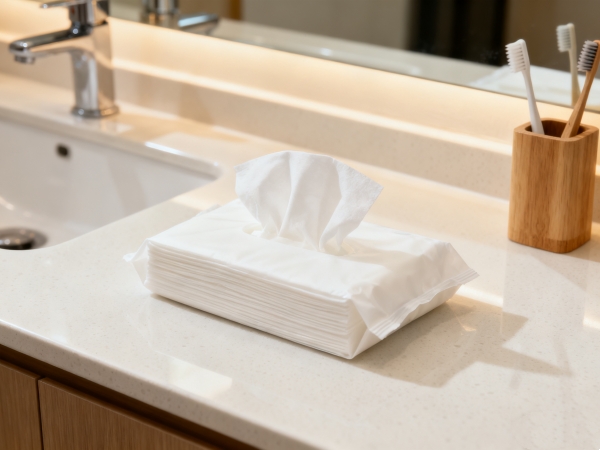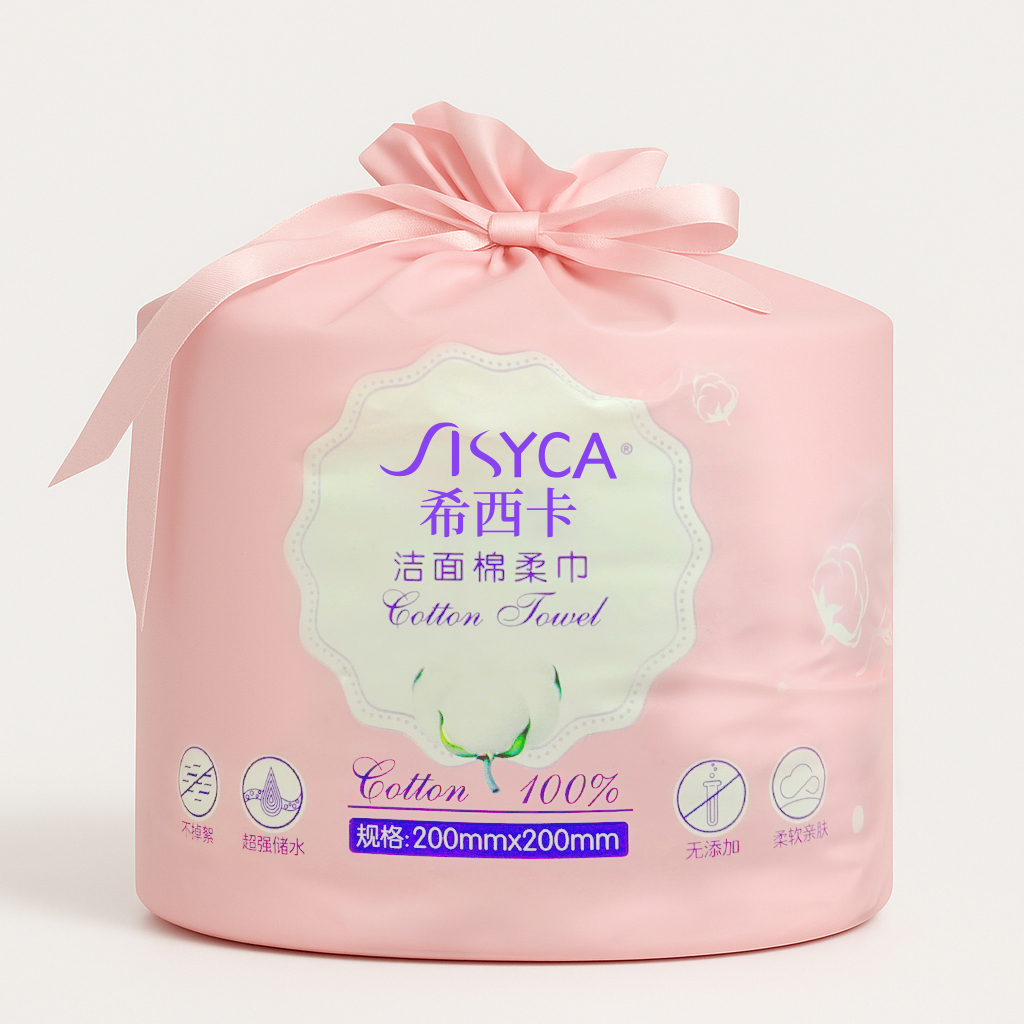Advantage of Using Dry Wipes
From a healthcare professional's perspective, dry wipes are indispensable in clinical settings due to their versatility and control. Unlike their wet counterparts, dry wipes offer complete flexibility, allowing hospital staff to use the exact amount of liquid or solution they need for cleaning, sanitizing, or personal care. This flexibility ensures the wipe remains clean and free from contamination until it’s needed.
Additionally, dry wipes provide hospitals with the ability to choose their own cleaning agents or sanitizing solutions, tailored to specific patient care protocols. With wet wipes, you’re often limited to the pre-soaked solution, which may not be suitable for all needs. Dry wipes allow for the customization of cleaning fluids, whether it's for sensitive skin care or cleaning delicate medical equipment.
Moreover, dry wipes have a longer shelf life compared to wet wipes. Because they don’t contain moisture, there’s no risk of microbial growth, ensuring the wipes remain sterile for longer periods—ideal for hospital storage and inventory management.
Dry Wipes are Gentler on Patients

Skin sensitivity is a critical consideration in hospitals, particularly when it comes to vulnerable patients such as infants, elderly patients, and individuals with compromised skin integrity. Dry wipes are much gentler compared to wet wipes, which can contain fragrances, preservatives, or alcohols that might irritate the skin.
Dry wipes, on the other hand, can be used with various hypoallergenic lotions, moisturizers, or water-based solutions, which are often prescribed for sensitive skin. This is crucial in hospitals, where patients might already be dealing with conditions like rashes, wounds, or allergies.
By allowing for controlled application of solutions, dry wipes can help avoid excessive exposure to potentially harsh chemicals or ingredients. This not only minimizes discomfort but also reduces the risk of skin reactions, making them a preferred choice for patient care.
Dry Wipes are Sustainable
The increasing focus on sustainability within healthcare facilities is a driving factor in the shift toward dry wipes. Wet wipes, which are often made with synthetic fibers and are used once before being discarded, contribute significantly to environmental waste. In contrast, dry wipes, especially those made from biodegradable materials, offer a more eco-friendly alternative.
Dry wipes also reduce water consumption. With wet wipes, there’s a need for added chemicals, water, and packaging that contributes to resource depletion. Dry wipes, especially those used with eco-friendly solutions, are not only better for the environment but also align with hospitals' sustainability goals.
Moreover, the reduced waste associated with dry wipes helps hospitals meet their environmental responsibility goals. The trend toward reducing single-use plastics and minimizing chemical waste further underscores the preference for dry wipes in the healthcare sector.
Why Dry Wipes are More Budget-Friendly
In any healthcare setting, cost-efficiency is always a top priority. Hospitals must balance quality care with budget constraints, and when it comes to disposable products, dry wipes offer a substantial advantage.
Dry wipes are often less expensive than wet wipes. This is primarily because they don’t require the added costs of packaging solutions or preservatives needed to maintain moisture. They also eliminate the risk of “over-wetting” that can occur with pre-moistened wipes, ensuring that no unnecessary waste occurs.
Additionally, dry wipes can be used for a variety of tasks—from cleaning medical surfaces to patient care—making them a more versatile and cost-effective option. Hospitals can customize the solution used with dry wipes to ensure it’s effective for different purposes, which eliminates the need for multiple types of wipes for different scenarios.
How Dry Wipes Minimize Chemical Exposure?
One of the greatest advantages of dry wipes in hospitals is their ability to minimize unnecessary chemical exposure. Wet wipes often contain chemicals like preservatives, alcohol, and fragrances, which can pose risks to both patients and hospital staff. These chemicals can cause skin irritation, allergic reactions, or exacerbate pre-existing conditions such as asthma.
Dry wipes provide hospitals with the flexibility to choose their cleaning or personal care solution based on patient needs. By allowing healthcare professionals to apply a custom amount of liquid or solution, the risk of overuse of chemicals is drastically reduced. This minimizes patient exposure to potential irritants while still ensuring effective cleaning or care.
For patients with allergies or those in intensive care, avoiding unnecessary chemicals is crucial. Dry wipes, combined with a controlled solution, offer a safer, more adaptable approach to hygiene and care, ensuring that chemicals are used only when absolutely necessary.
Why E-Way’s Dry Wipes are the Ideal Choice for Hospitals
With years of experience in healthcare supplies, E-Way offers dry wipes that stand out for their quality, durability, and sustainability. Made with gentle, hypoallergenic materials, our wipes are perfect for a wide range of medical and personal care applications. E-Way’s dry wipes are also designed to be compatible with a variety of solutions, ensuring maximum flexibility and safety for patients.
Whether you're looking for a versatile, eco-friendly option to reduce environmental impact or seeking to minimize chemical exposure while delivering effective patient care, E-Way’s dry wipes provide a cost-effective and reliable solution. Our products are trusted by healthcare professionals worldwide for their durability, gentleness, and environmentally friendly design.
































